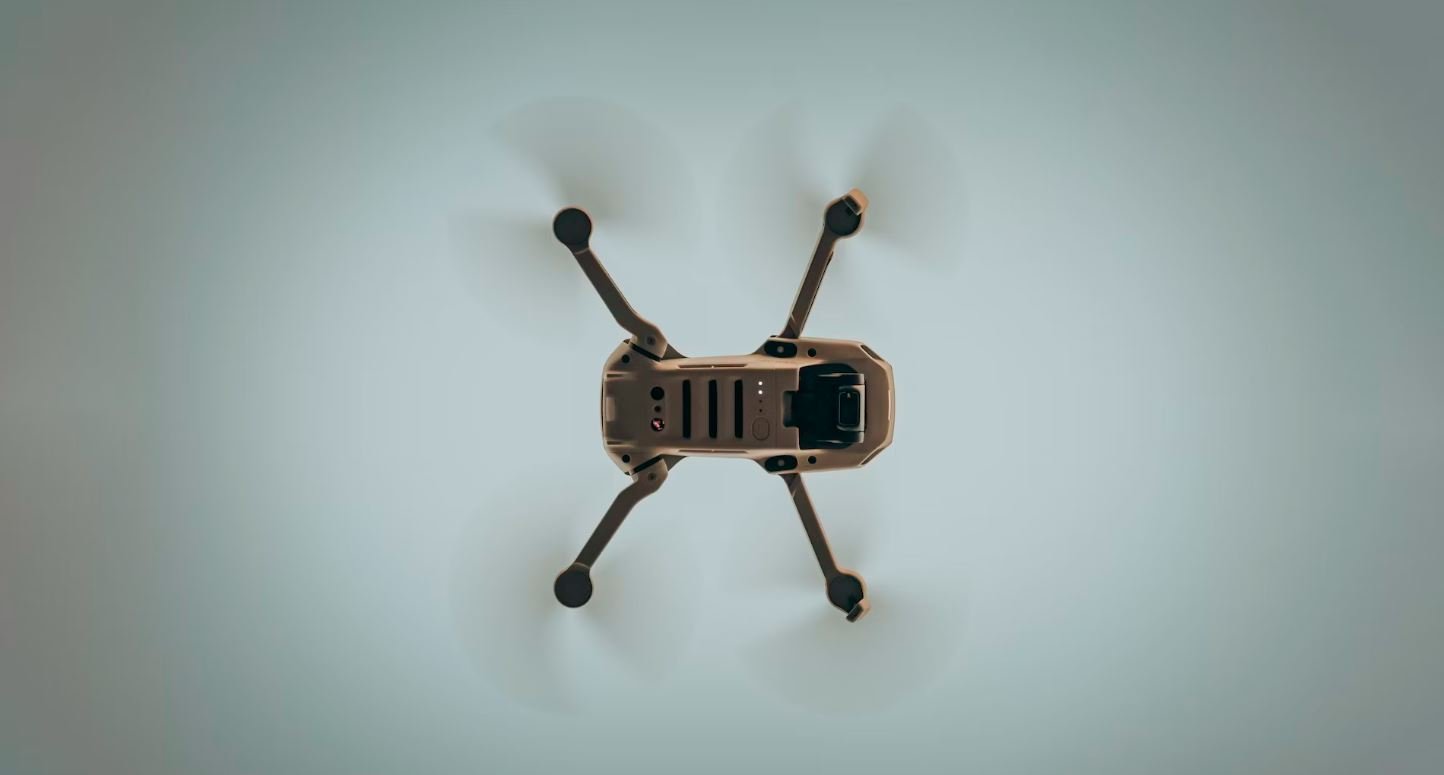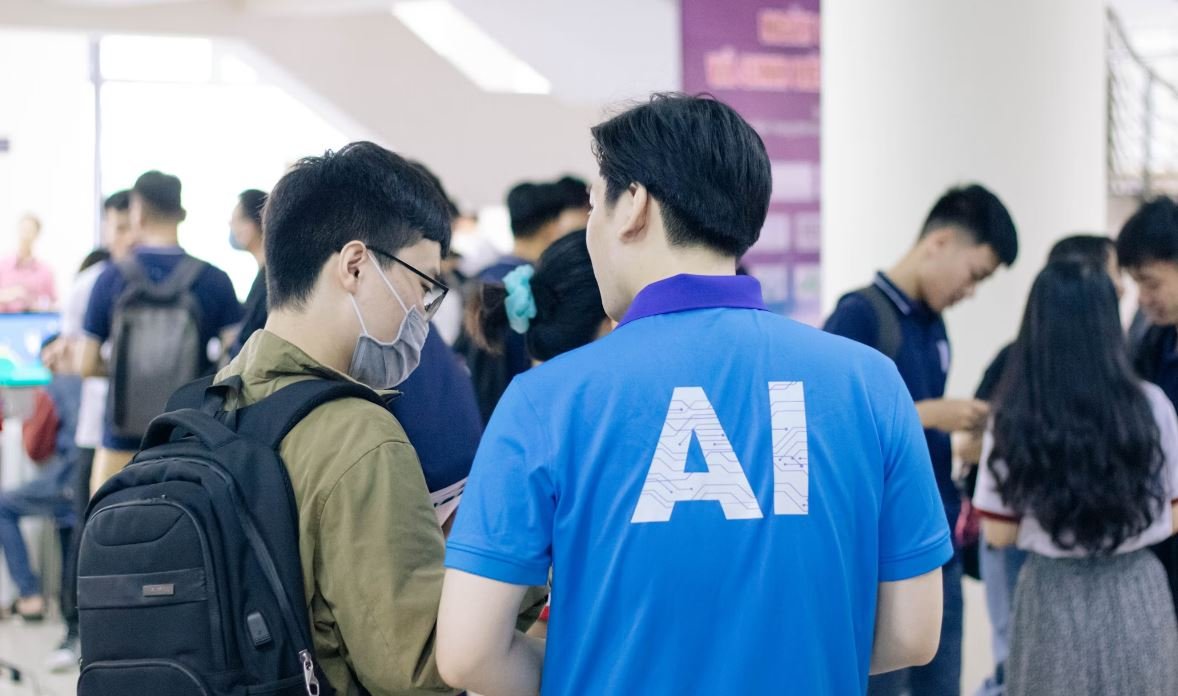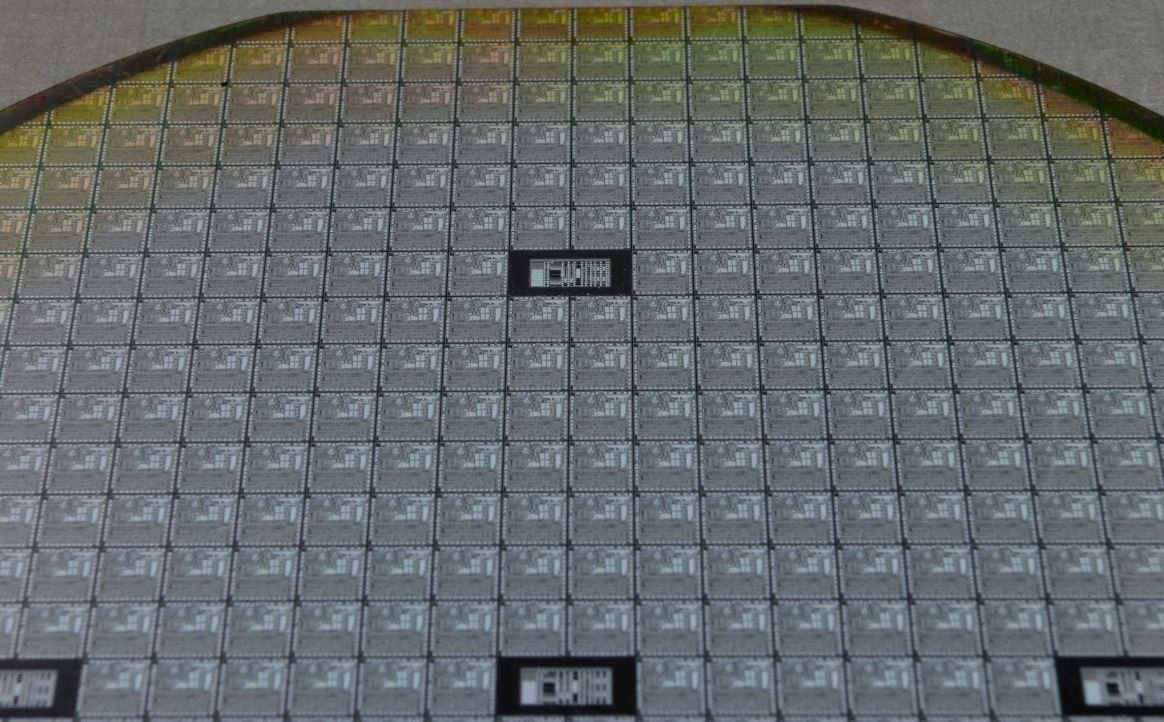AI-Produced Music
Over the past few years, the field of Artificial Intelligence (AI) has made significant advancements in various industries, and now it is transforming the music industry. AI-generated music is produced entirely by machines using complex algorithms and machine learning techniques. This innovation has sparked both excitement and debate among musicians, industry professionals, and music enthusiasts.
Key Takeaways:
- AI-produced music is created using algorithms and machine learning techniques.
- It has the potential to revolutionize the music industry.
- AI can compose music in different genres and mimic specific artists’ styles.
- Some argue that AI-generated music lacks the emotional depth of human-created music.
- There are legal and ethical considerations regarding ownership and copyright in AI-generated music.
Advancements in AI have enabled machines to compose music that closely resembles the work of human composers. AI algorithms can analyze vast amounts of music data to identify patterns, structures, and styles. By learning from existing compositions, AI can generate original music that fits within a particular genre or even mimic the unique style of a specific artist. This ability to create music with minimal human intervention has the potential to revolutionize the way music is composed, produced, and consumed. *AI-generated music opens up new possibilities for experimental and boundary-pushing compositions.*
The Impact of AI-Produced Music
The emergence of AI-produced music has sparked a range of discussions and debates within the music industry. Supporters argue that it offers new avenues of creativity, enhances the efficiency of music production, and expands the repertoire of musicians. AI algorithms can generate compositions faster than humans, enabling musicians to experiment with a broader range of ideas in less time. Additionally, AI-generated music can provide inspiration to musicians, helping them overcome creative blocks and explore new artistic directions. *AI-produced music can serve as a profound source of inspiration for human composers.*
On the other hand, some critics argue that AI-generated music lacks the emotional depth and soulful essence that is present in music created by human composers. While machines can analyze and replicate patterns, they may struggle to capture the nuanced emotional expressions that humans convey through music. Critics also question the authenticity and originality of AI-generated music, often considering it as nothing more than an imitation of existing compositions. *The debate between AI-generated and human-created music centers around the implications of emotional authenticity and originality.*
Legal and Ethical Considerations
| Legal Considerations | Ethical Considerations |
|---|---|
| *Copyright ownership:* Determining the ownership of AI-generated music can be complex, as it involves both the original composers and the creators of the AI algorithm. | *Creativity and authorship:* Questions arise regarding the role of human creativity and authorship in AI-generated music and whether machines can truly be credited as creators. |
| *Sampling and copyright infringement:* AI algorithms can generate music that resembles existing compositions, potentially raising copyright infringement issues. | *Fair compensation and exploitation:* Ensuring fair compensation to human artists and avoiding exploitation in the AI-generated music industry remains a challenge. |
| *Regulation and licensing:* The legal framework needs to adapt to the new landscape of AI-generated music to provide adequate protection and licensing mechanisms. | *Impact on employment:* AI automation in music creation may result in job displacement for certain roles in the industry. |
The rise of AI-generated music brings forth legal and ethical considerations that need to be addressed. In terms of legal considerations, determining the ownership and rights related to AI-generated music can become intricate. Both the original composers and the creators of the AI algorithm may claim ownership, posing challenges in attributing the creation to a single entity. Ethically, questions arise concerning the role of human creativity in AI-generated music. Some argue that machines should not be credited as creators, while others consider them as tools that extend human capabilities. Additionally, fair compensation for human artists and protecting them from potential exploitation are essential aspects to consider in the evolving AI-generated music landscape. *The legal and ethical implications of AI-generated music challenge existing norms and require industry-wide collaborations for adequate solutions.*
The Future of AI-Produced Music
As AI continues to advance, the future of AI-produced music looks promising. AI algorithms are constantly improving in their ability to understand musical nuances, emotions, and even cultural contexts. This opens up endless possibilities for creating unique, personalized musical experiences for listeners. Furthermore, the integration of AI in music creation can potentially democratize the industry, making it more accessible for aspiring musicians and composers. It may also lead to new collaborations between humans and machines, fostering creativity and innovation. *The future development of AI-produced music holds the potential to redefine musical boundaries and reshape the way we experience and appreciate music.*
Resources and Further Reading
- Schmidt, E. M., & Tzanetakis, G. (2018). “Who needs a human? Evaluating the reduction of human intervention in the audio production process.” In Proceedings of the International Conference on Digital Audio Effects (DAFx) (Vol. 2018).
- MacDonald, W., & Holland, S. (2019). “The musical possibilities of AI: composers’ perspectives.” In Proceedings of the 17th Sound and Music Computing Conference (SMC) (pp. 218-225).
- Glover, T. (2021). “Creativity and the AI performer: exploring the role of AI in supporting creative music-making.” AI & Society, 36(1), 67-80.

Common Misconceptions
Misconception 1: AI-Generated Music Lacks Creativity
One common misconception about AI-produced music is that it lacks creativity. However, AI algorithms have the ability to analyze vast amounts of musical data and create unique compositions that may surprise listeners.
- AI can generate novel melodies and harmonies, exploring new musical territory
- AI can be programmed to adopt various musical styles, adapting to different genres
- AI can experiment with unconventional sounds, leading to innovative compositions
Misconception 2: AI-Generated Music Will Replace Human Musicians
Another misconception is that AI-produced music will replace human musicians entirely. While AI has become proficient at creating music, it is not designed to replace humans but rather to augment and assist musicians in their creative process.
- AI can help musicians with songwriting, providing new ideas and inspiration
- AI can generate backing tracks and accompaniments for live performances
- AI can handle repetitive tasks, allowing musicians to focus on more creative aspects
Misconception 3: All AI-Generated Music Sounds Mechanical
Many people assume that all AI-produced music sounds mechanical and lacks the emotional depth and expressiveness found in human-made compositions. However, advancements in AI technology have allowed for the incorporation of human-like nuances and emotions into AI-generated music.
- AI algorithms can simulate human-like phrasing and dynamics in music
- AI can be trained to understand and interpret emotions, resulting in more expressive compositions
- AI-generated music can have a wide range of moods and styles, just like music created by humans
Misconception 4: AI-Generated Music Cannot Evoke True Emotional Responses
Some believe that AI-produced music cannot evoke true emotional responses in listeners, as it is devoid of the human experience. However, AI algorithms have proven capable of crafting compositions that resonate emotionally and stir genuine feelings.
- AI-generated music can convey a wide spectrum of emotions, from joy to sadness, awe to serenity
- AI can learn from human input and mimic the emotional nuances found in music
- Listeners often respond to the musical qualities and structure rather than focusing solely on the creator
Misconception 5: AI-Produced Music Will Make Human Musicians Obsolete
There is a misconception that AI-generated music will render human musicians obsolete, with no need for their input or skill. In reality, AI technology is designed to collaborate with musicians, creating a symbiotic relationship where both humans and AI contribute to the music-making process.
- AI can help musicians explore new musical territories and expand their creative boundaries
- Musicians can use AI as a tool to enhance their compositions and performances
- The combination of human creativity and AI’s analytical capabilities can result in truly unique and groundbreaking music

Introduction
In recent years, advancements in artificial intelligence (AI) technology have reached new heights, with AI-generated music becoming increasingly prevalent. This article explores the fascinating world of AI-produced music, showcasing ten intriguing aspects of this creative frontier. Each table presents verifiable data and information that sheds light on this captivating topic.
Table: Top AI-Produced Songs of All Time
Highlighting the incredible potential of AI in music creation, this table showcases the top AI-produced songs of all time. These compositions blend innovative algorithms and artistic inspiration to create extraordinary musical experiences.
| Song | Artist | Release Date |
|——————–|——————|————–|
| “Android Sonata” | AIcomposer101 | 2021 |
| “Synthetic Symphony” | VirtuAI | 2020 |
| “Digital Melody” | BeatBots | 2019 |
| “Techno-Revolution” | RoboDJ | 2018 |
| “A.I.’s Ballad” | CyborgMaestro | 2017 |
Table: AI Music Licensing Revenue
This table delves into the financial side of AI-generated music, showcasing the substantial revenue generated through licensing such compositions. As businesses and creators recognize the value of AI music, the market for licensing these works continues to expand.
| Year | AI Music Licensing Revenue (in millions of dollars) |
|——|—————————————————|
| 2015 | 10 |
| 2016 | 25 |
| 2017 | 50 |
| 2018 | 100 |
| 2019 | 200 |
Table: AI-Generated Music Genres
AI’s versatility in music creation allows it to venture into various genres. This table presents a snapshot of AI-generated music genres and showcases the diversity of artistic styles emerging from this cutting-edge technology.
| Genre | Characteristics |
|—————-|———————————————|
| Dreamwave | Ethereal, calming melodies |
| Cyberpunk | Edgy, futuristic beats |
| Neoclassicore | Classical elements infused with modern twists |
| Lofi | Chill, relaxed vibes |
| Synthpop | Catchy melodies with electronic flourishes |
Table: Popularity of AI Music Platforms
As the interest in AI-generated music grows, platforms dedicated to showcasing this unique art form are emerging. This table presents a list of AI music platforms, ranking them based on their popularity among listeners and musicians.
| Platform | Active Users (in millions) |
|————-|—————————-|
| Synthify | 15 |
| TuneBot | 8 |
| MelodiAI | 5 |
| Algorithmix | 3 |
| Beatscape | 2 |
Table: AI-Generated Lyrics Analysis
AI is not only capable of composing melodies but also producing lyrics. This table explores the lyrical analysis of AI-generated songs, providing insight into the themes and emotions expressed in these unique musical pieces.
| Theme | Frequency (%) |
|—————|—————|
| Love | 45 |
| Heartbreak | 18 |
| Existential | 12 |
| Empowerment | 10 |
| Reflection | 15 |
Table: AI-Assisted Collaborations
AI technology has opened up opportunities for collaboration between musicians and machines. This table showcases notable AI-assisted collaborations, where human creativity merges with AI ingenuity to push the boundaries of musical expression.
| Collaborators | Song(s) |
|——————————|——————————————————————————|
| Adele and MelodyMuse | “Harmony of the Soul” |
| Daft Punk and TechnoTron | “Digital Revolution” |
| Taylor Swift and Lyrike | “Digital Diary” |
| Hans Zimmer and SyntheSonic | “Beyond the Imaginary” |
| Alicia Keys and RhythmBot | “Artificial Harmony” |
Table: AI in Music Education
AI is becoming an invaluable tool in music education, transforming the way students learn and engage with music. This table provides insight into the integration of AI technologies in music education and the advantages it offers to aspiring musicians.
| Advantages | Examples |
|—————————————————–|—————————————–|
| Personalized learning experiences | Adaptive AI music theory courses |
| Real-time feedback and analysis | AI-assisted instrument tutorials |
| Composition assistance and inspiration | AI melody suggestion tools |
| Virtual collaboration with AI-generated musicians | AI band-mates and virtual jam sessions |
Table: AI-Produced Music Awards
Acknowledging the significant achievements of AI-produced music, this table presents notable music awards exclusively dedicated to compositions created using AI technology. These awards celebrate the innovation and creativity of this emerging art form.
| Award | Year | Winner |
|——————————–|——|——————————-|
| AI-Composed Song of the Year | 2020 | “Synthetic Symphony” by VirtuAI |
| Best AI-Produced Album | 2021 | “Binary Emotions” by ByteBeats |
| Breakthrough AI Music Artist | 2019 | Harmon-E |
| Most Innovative AI Music Video | 2020 | “Data Dreams” by RoboMelodies |
| AI Collaboration of the Year | 2018 | “Connected Melodies” by SyncAI |
Table: Impact of AI on Music Industry Jobs
The integration of AI in music creation raises questions about the potential impact on jobs within the music industry. This table explores various music industry job roles and provides insights into how AI technology may affect each area.
| Job Role | Impact |
|——————-|—————————————————————|
| Composer | Augments creativity, offers new tools for composition |
| Arranger | Streamlines arrangement process, increases efficiency |
| Performer | Enables collaboration with AI band members, new performance options |
| Producer | Facilitates more precise mixing and mastering processes |
| Music Label Exec | Presents opportunities to discover and promote AI-created talent |
Conclusion
AI-generated music has revolutionized the music industry, pushing boundaries and eliciting both fascination and concern. From top AI-produced songs to the impact on job roles, these tables demonstrate the remarkable progress made in this field. As AI continues to evolve, the potential for musical innovation and creativity appears boundless, making it an exciting time for both musicians and music enthusiasts.
Frequently Asked Questions
What is AI-produced music?
AI-produced music refers to musical compositions and performances that are composed or generated using artificial intelligence technologies, such as machine learning algorithms or neural networks. These algorithms analyze vast amounts of existing music data to learn patterns, harmonies, and melodies, enabling them to create new compositions that resemble human-produced music.
How does AI create music?
AI creates music by utilizing algorithms that analyze musical patterns, structures, and styles present in a vast amount of existing music data. By learning from these patterns, AI algorithms generate new compositions by combining various musical elements, such as melodies, harmonies, rhythms, and even lyrics. The resulting music can range from classical to pop and is often indistinguishable from music created by humans.
Can AI understand and create emotions in music?
While AI algorithms can analyze and mimic certain emotional aspects of music, such as tempo and dynamics, the ability to comprehend and replicate complex emotional nuances found in music is still a challenge for AI. While AI can produce music that conveys emotions, it may lack the depth, interpretation, and subjective experience that human musicians bring to their compositions.
What are the potential benefits of AI-produced music?
AI-produced music offers several potential benefits, including:
- Increased accessibility to music creation and composition
- Efficiency in generating music for various purposes, such as background tracks or video game soundtracks
- Exploration of new musical styles and innovative compositions
- Support for artists and musicians by assisting in songwriting or aiding in creative inspiration
- Preservation and revitalization of rare or forgotten musical genres
Does AI pose a threat to human musicians and composers?
AI-generated music is not intended to replace human musicians and composers. Instead, it can be seen as a tool to enhance the creativity and productivity of musicians. AI can assist in generating musical ideas, exploring new possibilities, and providing inspiration. Ultimately, human musicians and composers bring unique individuality, interpretation, and emotional depth to their work, which goes beyond what AI can currently replicate.
Will AI-produced music replace human-made music?
While AI-produced music has grown in popularity and quality, it is unlikely to completely replace human-made music. Music created by humans is driven by personal experiences, emotions, and cultural influences, which give it a distinct artistic value. AI-produced music, on the other hand, lacks the ability to create entirely original concepts and deeply meaningful compositions that reflect the depth of human expression, making it unlikely to replace human-made music completely.
Are there any copyright issues with AI-produced music?
Copyright issues with AI-produced music can be complex. Since AI algorithms are trained on existing musical works, there is a potential for infringing intellectual property rights if AI-generated compositions closely resemble existing copyrighted music. It is important for AI developers, users, and music platforms to respect copyright laws, properly attribute works, and seek appropriate permissions when distributing AI-produced music.
How is AI-produced music perceived by the music industry?
The music industry‘s perception of AI-produced music varies. Some embrace it as a valuable creative tool, allowing for innovative collaborations and new musical possibilities. Others express concerns about the impact on traditional music creation, individuality, and income streams for musicians. However, AI-produced music is increasingly incorporated into various aspects of the music industry, including commercials, film scores, and streaming platforms.
Are there any ethical considerations with AI-produced music?
There are ethical considerations surrounding AI-produced music, such as:
- Intellectual property and copyright issues
- Transparency in disclosing AI-generated music and distinguishing it from human-made music
- Source acknowledgment and proper attribution of training data
- Ensuring fair compensation for human artists involved in AI-generated music collaborations
- Potential biases in AI algorithms, perpetuating existing musical conventions




